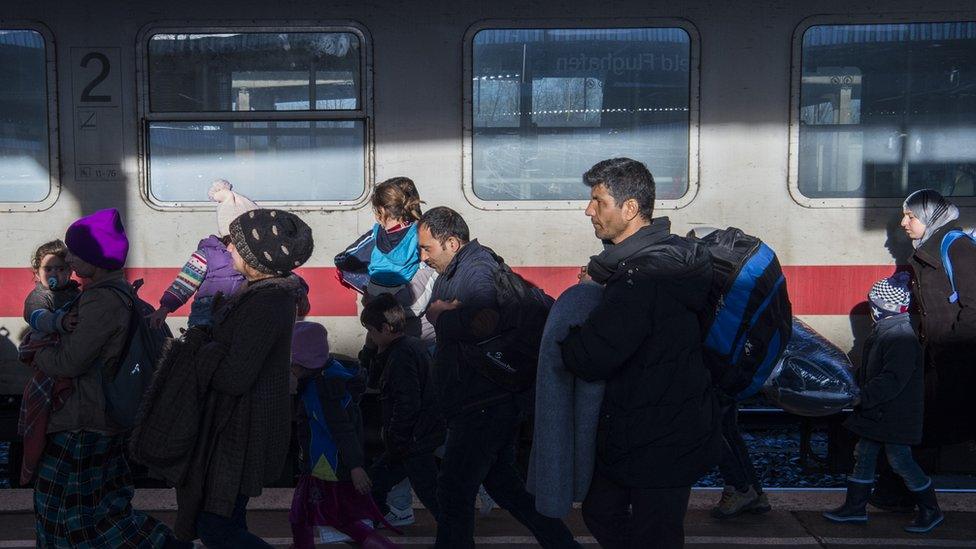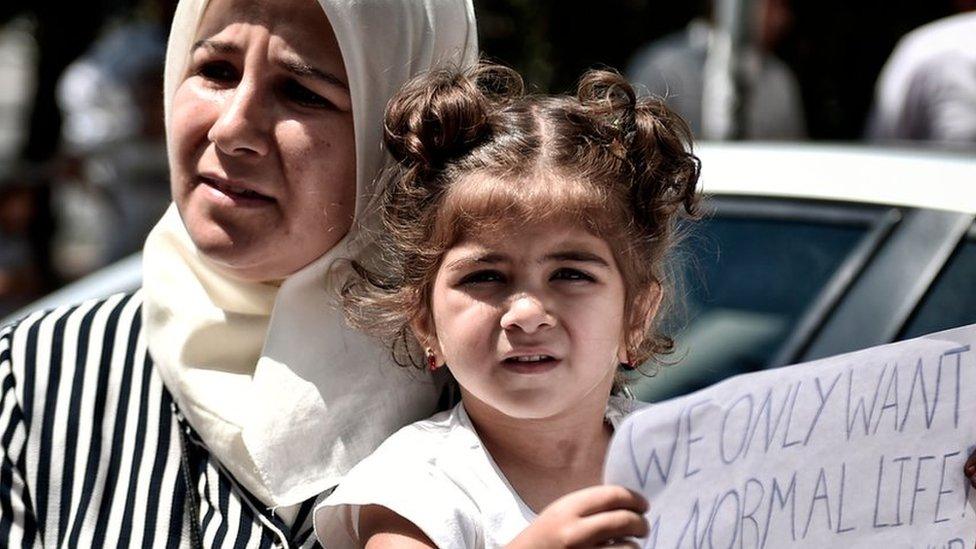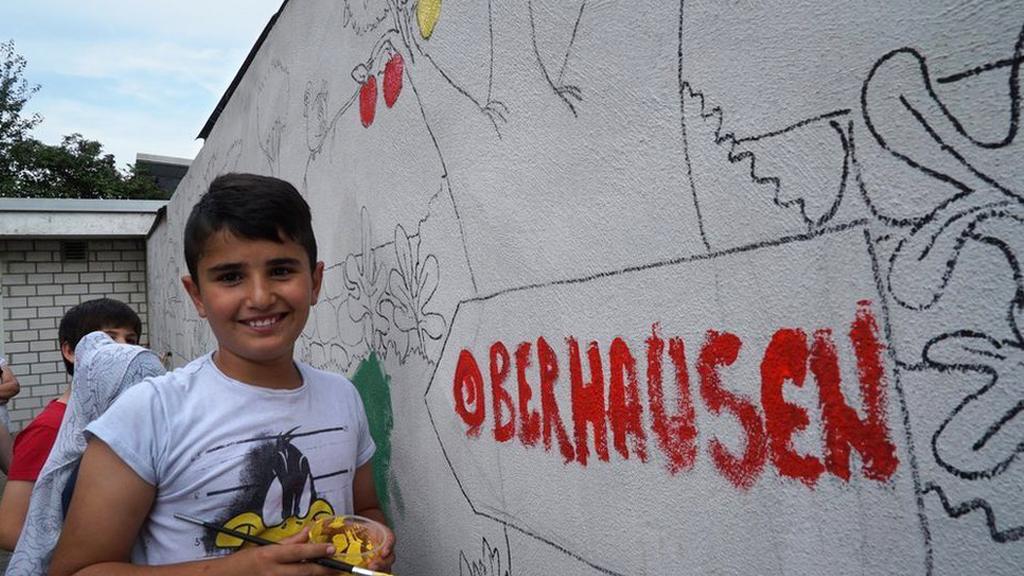Susanna Maria Feldman: Iraqi murder suspect returned to Germany
- Published

Flowers mark the spot where Susanna's body was found
An Iraqi man who reportedly confessed to raping and killing a German teenage girl has been deported back to Germany.
Ali Bashar, a failed asylum seeker aged 20, disappeared after Susanna Maria Feldman, 14, was found strangled near the city of Wiesbaden last month.
He was detained on Friday in Iraqi Kurdistan and police there say he confessed to the crime.
Armed and masked police officers escorted him to police headquarters in Wiesbaden on Saturday.
"I'm delighted that the suspect will be tried in Germany," Interior Minister Horst Seehofer said in a statement.
The case has renewed debate in Germany over immigration policy.
Police in Iraq's autonomous Kurdish region say they arrested Mr Bashar in his home region of Duhok after being contacted by the German authorities.

Police escorted Mr Bashar to police HQ in Wiesbaden

Ali Bashar was found in Iraqi Kurdistan
The girl's mother reported her missing on 23 May.
Susanna's body was found in a wooded area near a centre for asylum seekers where Mr Bashar and his family lived.
She had been strangled and sexually assaulted.
Chancellor Angela Merkel was widely criticised over her decision to open Germany's borders during Europe's refugee crisis in 2015. More than a million migrants arrived in the country as a result.
The backlash sparked by her policy helped fuel the country's far right in last year's election. The anti-immigrant Alternative for Germany (AfD) party entered the federal parliament for the first time.
Mrs Merkel's CDU-CSU conservative bloc and the Social Democrats (SPD) agreed to limit migration as part of a coalition deal.
Germany's interior minister is pressing ahead with controversial plans to hold asylum seekers in centres until their right to stay is determined.
A note on terminology: The BBC uses the term migrant to refer to all people on the move who have yet to complete the legal process of claiming asylum. This group includes people fleeing war-torn countries such as Syria, who are likely to be granted refugee status, as well as people who are seeking jobs and better lives, who governments are likely to rule are economic migrants.
- Published29 March 2018

- Published16 March 2018

- Published15 December 2017

- Published8 September 2017
